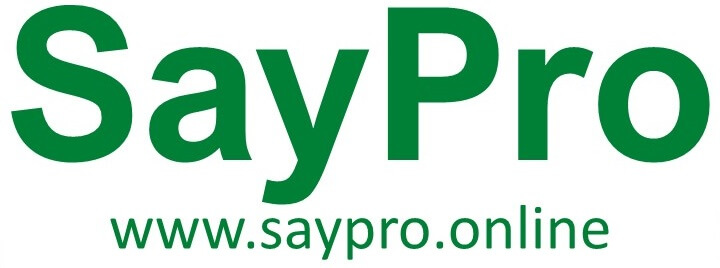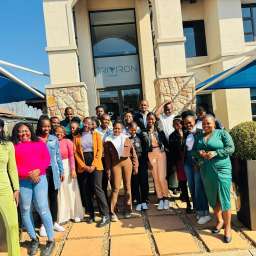Your basket is currently empty!
Study on Nostrification of Ukrainian Certificates and Diplomas in Poland
Terms of Reference (ToR) Study on Nostrification of Ukrainian Certificates and Diplomas in Poland Background Nearly 65% of Ukrainian refugees in Poland are engaged in income-generating activities (Polish Economic Institute, 2024), contributing approximately 1% to Poland’s GDP in 2023 (Deloitte, 2024). Despite this, their labor market participation remains significantly lower than that of Polish nationals, with unemployment rates among displaced Ukrainians at 15%, compared to 3% among Polish citizens. Many Ukrainian refugees are employed below their qualifications, which risks long-term skill degradation, financial instability, and adverse effects on mental health. The process of nostrification (recognition of foreign diplomas and certificates) is critical to enabling refugees to access employment that matches their skills and qualifications. However, this process is often complex and time-consuming, creating significant barriers to labor market integration. This study will clarify the nostrification pathways, identify key challenges, and propose actionable recommendations for local and central authorities to simplify and expedite the process. Objective of the Study To facilitate the professional and economic integration of Ukrainian refugees in Poland, the Skills Alliance in Poland seeks a consultant to: Review and document the procedures, requirements, and documentation necessary for nostrification of Ukrainian vocational and higher education qualifications in Poland Analyze the key barriers and challenges within the nostrification process, focusing on: – Regulatory complexities and inconsistencies. – Institutional roles, capacities, and coordination – Procedural inefficiencies or bottlenecks. – Regulatory complexities and inconsistencies. – Institutional roles, capacities, and coordination. – Procedural inefficiencies or bottlenecks. The analysis should be supported with the interviews with individuals who went through the process of nostrification 3. Provide recommendations for simplifying and improving these procedures for key stakeholders, including local and central authorities (incl. good practices from other countries). Scope of the Study The study will focus on the following professional domains: School Teachers: Subject teachers, early childhood educators, special needs educators. Healthcare Professionals: Nurses and midwives. Technical Professions: Electricians, automation technicians, electromechanics, mechanics, mechatronics technicians, facility maintenance technicians, technical managers, pile driver operators. Logistics and Industry Professions: Warehouse workers, forklift operators, welders. The consultant is expected to use a gender-sensitive and inclusive approach, addressing the unique challenges faced by women and other vulnerable groups. Methodology The consultant is encouraged to propose a robust methodology. Suggested methods may include: Desk research of relevant legislation, policies, and procedures. This will include a process-mapping exercise to visually represent the nostrification steps, identifying bottlenecks, and inefficiencies. Stakeholder interviews with education ministries, vocational institutions, and nostrification offices. Surveys and focus groups with Ukrainian refugees and Polish employers. Case studies of successful nostrification processes. The methodology should include an ethical approach, ensuring confidentiality and safeguarding of any participants involved. Expected Outputs The consultant is expected to deliver the following: Inception Report Detailed methodology, work plan, and stakeholder engagement plan. 2**. Final Report** (in Polish and English), including: Clear explanation of the nostrification process in the specified domains. Analysis of key barriers to the recognition of qualifications. Practical, actionable recommendations for local and central authorities to streamline and improve the process. The final report should be concise, visually engaging, and include: Infographics, charts, and icons to enhance readability. A standalone executive summary for wider dissemination. 3**. Presentation of Findings** A presentation or workshop with key stakeholders from the skills alliance to share findings and discuss recommendations (costs of the arrangement will be covered by CARE) Timeline and Milestones The study is expected to be completed within six weeks. Key milestones include: Week 1–2: Desk research and stakeholder mapping. Week 3–4: Data collection and analysis. Week 5: Submission of the draft report. Week 6: Final report submission and presentation of findings. Interested consultants may suggest another timeline which they find feasible Qualifications of the Consultant Relevant academic credentials in education, social sciences, economics, or related fields. Proven experience conducting similar assignments. Demonstrated expertise in vocational and higher education systems in Poland and Ukraine (e.g., publications, reports). Thorough understanding of labor markets in Poland and Ukraine. Proficiency in Polish and Ukrainian languages. Ethical Considerations The consultant must adhere to CARE’s safeguarding and ethical research standards, ensuring: Confidentiality of all participants. Informed consent for any interviews or focus groups. Respect for the rights and dignity of all individuals involved in the study. Evaluation Criteria Proposals will be evaluated based on the following criteria: Relevant experience and qualifications (30%). Proposed methodology and approach (30%). Price competitiveness (20%). Delivery timeline and capacity to meet deadlines (20%). How to apply Application Process Interested parties are invited to submit their proposals to pol.procurement@care.org by 31st of January 2025. Proposals should include: Timeframe for delivering the expected outputs. Gross price for conducting the study. Detailed Methodology to be applied. Team Composition, including CVs of key personnel. Examples of previous work relevant to the assignment.















